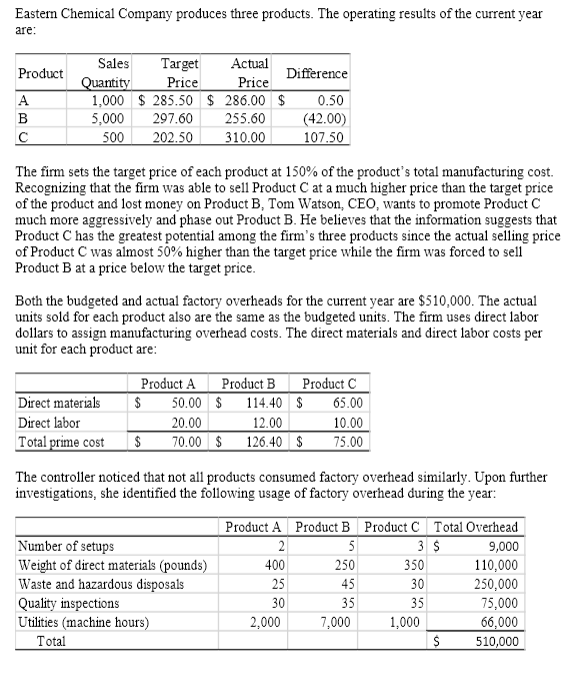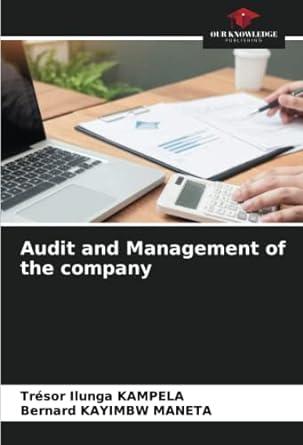Question
Required: 1. Determine the product (manufacturing) cost per unit for each of the products using the volume-based method. Then, compute the gross margin per unit

Required: 1. Determine the product (manufacturing) cost per unit for each of the products using the volume-based method. Then, compute the gross margin per unit for each product to determine the most and least profitable product line. 2. Determine the product (manufacturing) cost per unit for each of the products using the activity-based costing (ABC) method. Then, compute the gross margin per unit for each product to determine the most and least profitable product line. 3. What is the new target price for each product based on 150% of the new costs under the ABC system? Compare this price with the actual selling price. Discuss your findings. 4. Comment on the result from a competitive and strategic perspective. As a manager of Eastern Chemical, describe what actions you would take based on the information provided by the activity-based unit costs.
Eastem Chemical Company produces three products. The operating results of the current year are: The firm sets the target price of each product at 150% of the product's total manufacturing cost. Recognizing that the firm was able to sell Product C at a much higher price than the target price of the product and lost money on Product B, Tom Watson, CEO, wants to promote Product C much more aggressively and phase out Product B. He believes that the information suggests that Product C has the greatest potential among the firm's three products since the actual selling price of Product C was almost 50% higher than the target price while the firm was forced to sell Product B at a price below the target price. Both the budgeted and actual factory overheads for the current year are $510,000. The actual units sold for each product also are the same as the budgeted units. The firm uses direct labor dollars to assign manufacturing overhead costs. The direct materials and direct labor costs per unit for each product are: The controller noticed that not all products consumed factory overhead similarly. Upon further investigations, she identified the following usage of factory overhead during the yearStep by Step Solution
There are 3 Steps involved in it
Step: 1

Get Instant Access to Expert-Tailored Solutions
See step-by-step solutions with expert insights and AI powered tools for academic success
Step: 2

Step: 3

Ace Your Homework with AI
Get the answers you need in no time with our AI-driven, step-by-step assistance
Get Started


